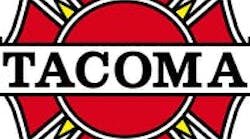Dec. 15--TABLE ROCK -- Smokey Bear will tell you that forest fires are bad, but for the actual bears in the Linville Gorge Wilderness that's not always true.
It will be several months until the effects of the recent Table Rock wildfire will be known, but the fire may provide a benefit to the area's ecosystem and nearby residents.
The Table Rock fire burned 2,579 acres from Nov. 12 to Dec. 4, costing $2 million to suppress. Investigators believe people started the fire, but specifics are unknown and no one has been charged.
Experts say wildfires, especially in the Linville Gorge area, can help local plant species and getting rid of forest debris that, if allowed to build up, can feed wildfires and make them more severe, hotter-burning and a larger threat to nearby communities.
"Keeping fires out is keeping a natural process out," said Debbie Crane of The Nature Conservancy, an international conservation organization, and eliminating fire allows the "nature of the whole situation to change."
For instance, a lack of fire leads to fewer oak trees because oaks are slow-growing; faster-growing plants block sunlight and prevent young oaks from growing. Oaks supply acorns, an important food source that "everybody in the forest eats," including bears, Crane said. The lack of acorns then can lead to bears roaming in search of food, which can include roaming into human neighborhoods.
The idea of setting fires or allowing fires to burn is controversial because one of the federal government's most successful public service campaigns was the Smokey Bear campaign, which spreads the message that all forest fires are bad, when that's simply not the case, Crane said.
In 2010, researchers from Duke University established that the ecology of the forest that European settlers encountered was shaped by fire. Soil samples in the Nantahala National Forest established not only that fire has occured regularly in the area throughout the past 10,000 years, fire occurences increased with the appearance of Woodland Tradition Native Americans about 1,000 years ago and decreased after the arrival of Europeans about 250 years ago.
Botanists, hydrologists and other experts from the Forest Service and The Nature Conservancy will head to Table Mountain next spring to see the effects of the most recent fire, and Crane said the Conservancy expects outcomes to be positive, judged by the amount of new growth seen after the fire.
Several species in the Linville Gorge area benefit from fire, including Mountain Golden Heather and Heller's Blazing Star, both federally listed as threatened species, which need fire to burn away trees and shrubs to create open areas. Some tree species benefit also, including the Short Leaf and Table Mountain Pine, which need excessive heat in order for their cones to open and drop their seeds.
The species are important to the ecology of the area, especially the pine, which stabilizes soil on steep, rocky slopes, deterring landslides.
There have been numerous wildfires in the Linville Gorge in recent years, burning more than 20,000 acres since 2000, including the Brushy Ridge Fire, which started from an abandoned campfire and consumed 10,000 acres, and the lightning-caused Shortoff fire, which burned 3,200 acres.
Some of those had positive outcomes, and it's possible the Table Rock fire could have positive outcomes too, Wescott said, but it's too early to tell.
Groups such as The Nature Conservancy have been pushing for prescribed burns in the area, the intentional setting of small fires under conditions allowing the fire to be controlled, to help the fire-dependent species and eliminate excess debris and fuel.
A proposal from the U.S. Forest Service in April made the case for a prescribed burn in the Linville Gorge Wilderness. "Reintroducing fire to the gorge would help the ecosystem and benefit native plants and animals," and would "reduce dense understory vegetation and better protect surrounding communities by reducing the risks of high-severity wildfire," the proposal said.
Wescott said the Forest Service wanted to do the burn to "to manage fire on our terms as opposed to having a wildfire that potentially gets real large and costs a lot of money to suppress."
The circumstances of the Table Rock Fire were "unfortunate," Crane said, noting that two controlled burns were planned in the area on the day the fire started but were canceled due to unfavorable weather conditions.
Copyright 2013 - News-Topic, Lenoir, N.C.





